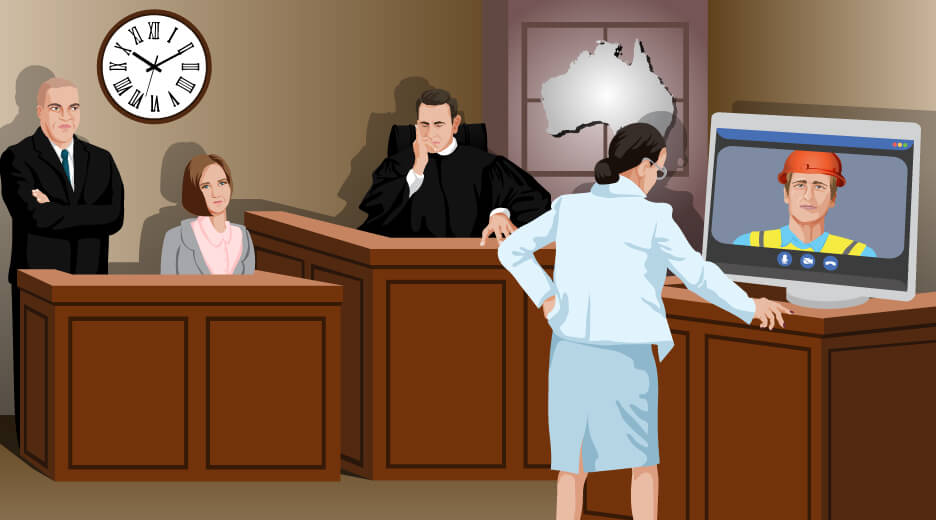Section 77C Bankruptcy Examinations Are Now Allowed Via Videoconference
An important part of the personal bankruptcy process in Australia is the ability of those overseeing the process to ‘examine’ the individual undergoing bankruptcy or any other relevant person. This is the ability to question that person or those persons, under oath, about their financial affairs, fraud or involvement with the bankrupt. This power is contained within section 77C of the Bankruptcy Act 1966 (Cth) and is sometimes known as a ‘private examination’.

In article:
In this update we discuss the recent decision of the Australian Financial Security Authority (AFSA) to allow these examinations to occur remotely via video conference.
The purpose of section 77C
Bankruptcy in Australia is a process that applies to individuals that are insolvent — that is, those unable to pay their debts as they fall due and payable. In Australia, companies or corporations do not file for bankruptcy. Rather, they go through a distinct process under the Corporations Act 2001 (Cth) known as an insolvent liquidation or ‘winding up’.
For more information on the liquidation process check out The Ultimate Guide to Liquidation: Part 1.
A significant challenge for those administering a bankruptcy — perhaps the most significant — is getting a full picture of the bankrupt individual’s financial affairs. This is necessary for determining exactly which assets are available for distribution to creditors. In the case of the liquidation of a corporation there are (or should be) a range of records and reports available to work out the company’s financial situation. Understandably, that is often not the case for bankrupt individuals.
Section 77C of the Bankruptcy Act 1966 (Cth) provides a formal mechanism for getting as much information as possible from the debtor, or any other relevant person.
How section 77C works in practice
First, it is necessary to explain some bankruptcy terminology. At the initiation of the bankruptcy process, the individual’s remaining assets vest in what is known as the ‘bankrupt estate’. This estate is overseen by a ‘trustee’. The trustee is either a registered trustee in private practice, or, in 80 percent of cases, the default ‘Official Trustee in Bankruptcy’. This is a body corporate, which, in effect, acts as the Government’s trustee in bankruptcy. The actual day-to-day work of the bankruptcy is carried out by the ‘Official Receiver in Bankruptcy’ (Official Receiver), on behalf of the Official Trustee.
As a first step, when overseeing a bankruptcy, the trustee or their representative will obtain from the debtor a ‘statement of affairs’ setting out their financial situation. The trustee will then interview that debtor where necessary to clarify any matters. They will also carry out a range of other investigations (eg. checking various registers for information about ownership) in an attempt to get a full picture of the assets available. All these activities are permitted under section 77 of the Bankruptcy Act 1966 (Cth).
In addition, where necessary the trustee has the right to access the books of any associated related entities (section 77A) or to access the premises physically (section 77AA).
A private examination is a separate procedure permitted under section 77C of the Bankruptcy Act 1966 (Cth). On behalf of the trustee, the Official Receiver may issue a notice requiring any person (including the debtor) to give evidence in person and produce any books requested. The individual gives evidence under oath, and if they fail to provide evidence or attend when requested, their behaviour is punishable by imprisonment (see sections 81, 267B and 267D of the Bankruptcy Act 1966 (Cth)).
Private examinations may now be conducted by video conference
AFSA has announced that section 77C examinations need not be conducted in person and may now be conducted via video.
This should make the process easier for both parties and may lead to an increase in the use of this procedure. It significantly reduces the cost for the trustee (no need to pay for airfares and accommodation in the place of the examination). It may also make it harder for any individual who seeks to avoid the examination by ‘hiding’.
Note however, that this new method does raise some questions:
- Will individuals be able to attend from overseas? Anyone seeking to do so should consult a lawyer as to whether there is jurisdiction to do so.
- Will sickness count as a valid excuse not to attend, given that the examination could occur over a smartphone?
Do liquidators have the same power over directors in a corporate insolvency?
As mentioned earlier, corporate insolvency is administered through the liquidation framework under the Corporations Act 2001(Cth) rather than the Bankruptcy Act 1966 (Cth).
While there are many similarities between the powers of a liquidator in liquidation and a trustee in bankruptcy, there is no equivalent to section 77C in the Corporations Act 2001 (Cth).
However, section 530A does hold that officers of the company are required to assist the liquidator. The liquidator can use this section to request any information that they might require. The liquidator can also insist that this is done remotely if they wish.
There is also the power, where necessary, for the liquidator to insist on a public examination of directors of the insolvent company in court.
Conclusion
Section 77C of the Bankruptcy Act 1966 (Cth) provides a powerful mechanism for the Official Receiver (the entity that administers 80 percent of bankruptcies in Australia) to require a debtor, or anyone else, to provide evidence on oath. The stiff penalties for failing to comply with this ‘private examination’ are a powerful incentive to comply.
It is likely that the decision of AFSA to allow these to be conducted remotely could increase the number of section 77C examinations occurring.